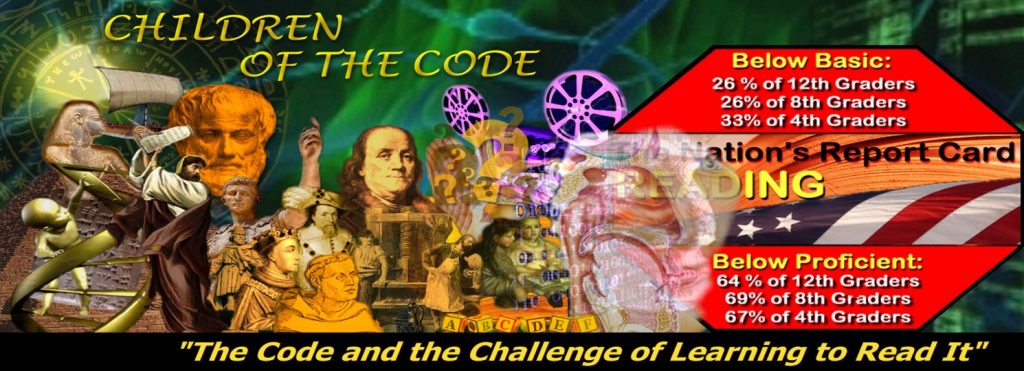
The “Children of the Code” project conducted over one hundred in-depth interviews with leading scientists and scholars whose expertise contributed to our prevailing understanding of the “the code and the challenges involved in learning to read it”.
Children of the Code Interviewees
“This program and the kind of effort that you’re doing seems to be just perfect. When I saw your list of the people you have already interviewed or were set to interview it was, of course, the Who’s Who of the whole field”. – Chris Doherty, Ex- National Program Director, Reading First Program, U.S. Department of Education
“What really attracted me to your project was its originality and breadth. I really like that you have assembled such a diverse group of experts in a variety of areas pertaining to reading.” – Dr. Paula Tallal, Chair of Neuroscience, Rutgers University
Our interviews explored “what’s at stake” and “what’s involved” in learning to read with an emphasis on helping parents and educators better understand the “challenges involved in learning to read”.
Children of the Code Chapters
“Wow, that’s interesting. I think that’s a lovely description of it (the challenge of learning to read). It really is a virtual reality; it is a matrix…. I’m impressed with the cast that you’ve assembled; it’s certainly a very impressive group.” – Dr. Tim Shanahan, National Reading Panel Member, Chair National Early Literacy Panel, Past President International Reading Association
“It’s a wonderful thesis and it’s so refreshing to hear you articulate it because I guess I am in total agreement with it and I have not really heard people articulate it as clearly as you have… I love what you are doing.”- Dr. Louisa Moats, Sopris West Educational Services
“Like most scholars, until awakened by the “Children of the Code” project, I took reading as much for granted as eating and drinking. Very few of us have paid sufficient attention to the specific emotions triggered in children as they begin to read. Yet any impediment to mastery of the confusing code that connects spoken and written English must trigger shame, the emotion that stops all useful thought. So painful does shame become in the public arena of the schoolroom that our children swiftly divide into two streams and two futures purely on the basis of their response to the shame that accompanies the struggle to learn our written language. “Children of the Code” merits the serious attention of anyone interested in emotional health of children or the future of America.” – Donald L. Nathanson, M.D. Clinical Professor of Psychiatry, Jefferson Medical College, Author: Shame and Pride and Knowing Feeling
Of great importance to the key point of this series, our description of reading was very well received:
Reading is a simulated language experience constructed by our brains according to the instructions and information contained in a c-o-d-e.
Yes, I think that’s a fundamentally correct way to understand it. If you don’t understand it that way I think you’re going to maybe go down some garden path. – Dr. Charles Perfetti, Director of the Learning Research and Development Center at the University of Pittsburgh
“Children of the Code” is a wonderful, general resource for educating yourself, a class, a teaching staff, your professional assistants — or any other group with a need to know — about the miracle of reading. When Boulton’s treatment extends into my own scientific subdiscipline [neuroscience], his treatment passes muster, for accuracy, and for balance. “Children of the Code” is a unique achievement, and an OUTSTANDING contribution to this VERY important subject. Nothing quite like it, under the sun! – Dr. Michael Merzenich, (Mr. Neuroplasticity) Keck Center for Integrative Neurosciences, UCSF
“I love what you have all done and am using the videos in graduate school psychology courses as well as in consultation with elementary teachers and administration”. – Dr. Lynn O’Connell, Alfred University, NY
“I’ve taught the literacy courses at University of Dayton for the past three years…this after teaching for 30 years. Your website has totally changed the type of material and the message I’m delivering to my students. I finally feel like I am able to offer my students some truly valuable information about teaching reading.” – Dr. B. Lewellyn, University of Dayton, OH

Keep beating the drum, please, to unlock the mysteries of reading success!!